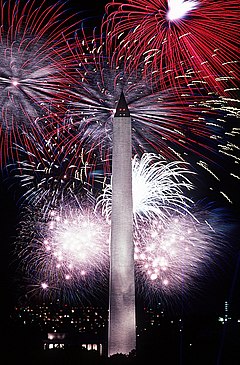| Public holidays in the United States | |
|---|---|
 | |
| Observed by | Federal government State governments Local governments Private and public sector employers |
| Type | National |
In the United States, public holidays are set by federal, state, and local governments and are often observed by closing government offices or giving government employees paid time off. The federal government does not require private businesses to close or offer paid time off, as is the case for most state and local governments, so employers determine which holidays to observe.
Several federal holidays are widely observed by private businesses with paid time off. These include New Year's Day, Memorial Day, Independence Day, Labor Day, Thanksgiving, and Christmas. Businesses often close or grant paid time off for New Year's Eve, Christmas Eve, and the Day after Thanksgiving, but none of these are federal holidays. Other federal holidays are less widely observed by businesses. Most federal holidays are celebrated on a Monday or Friday to create a three-day weekend.
Christmas is the only religious holiday that is a federal holiday. Some businesses allow religious employees to take paid time off for religious observances.
Other holidays, such as Halloween and Valentine's Day, are widely celebrated in the United States but rarely include paid time off.